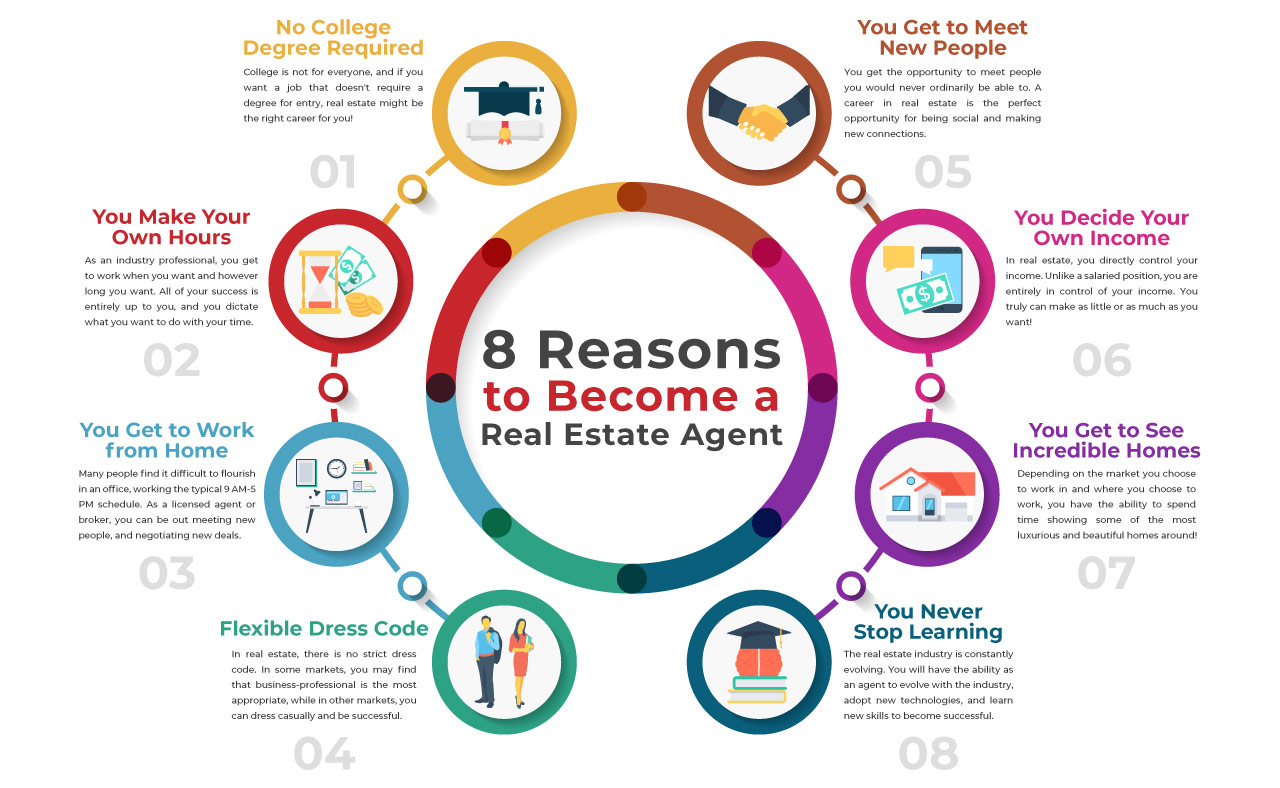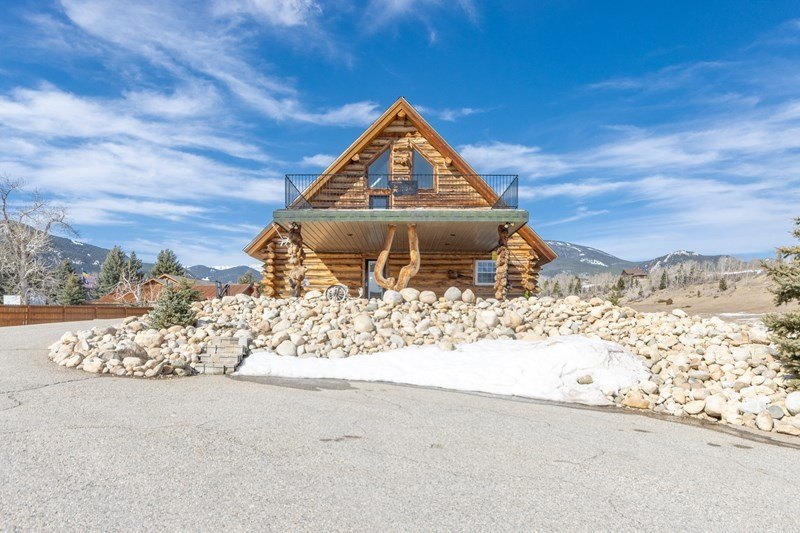
Brokerage desk fees
Desk fees are fees charged by brokers to get office space and a place to work. These fees can vary in price and range from $500 per person to thousands of bucks per month. These fees can be costly and you might not get any commission until the transaction is closed. Be sure to include advertising and signage costs.
There are many factors that can affect the cost of a realty license and brokerage fees. They include your existing business structure, the number and location of your clients, and the number and type of employees you have. You should also consider that these fees might not become effective until you have been licensed.
Fees for continuing education
There are many good reasons to spend money for continuing education. It is important to stay current with changes in laws and regulations. The more you understand, the more prepared you will be to take real estate exams. You can choose from an online course or a classroom setting. Online courses are typically between $69-$900 while live classes can run several hundred dollars.

Real estate agents are required to complete additional courses in order stay current and protect public interest. These classes are required under state law and real-estate commissions. Many brokerages pay fees for their agents.
Exam costs
The cost to obtain a real estate license can vary from one state to the next. It can range from $400 to more that $1000 depending on your requirements. Pre-licensing and exam preparation courses are required in most cases. These will cost between $80 and $150. Depending on the state, you may also have to pay an application fee of $100 to $300.
A minimum of 75 hours of coursework is required before you can take the realty exam. This coursework can be taken online or in a traditional classroom. In either case, the coursework must have a live instructor and include topics relevant to real estate. You will also need to take a school exam with 110 multiple-choice questions.
How to become an agent in real estate
New York real estate brokers must have completed 45 hours of education before being licensed. These courses must include business law, agency law and real estate investing. They must also include courses on taxes and assessments. A qualifying exam can also be taken by the Department of State.

There are different requirements for becoming a real estate agent depending on where you want to work. At least 18 years must be completed before you can become a real estate broker. Second, you will need to complete a broker education course. The course lasts for several weeks and can cover many subjects such as real estate law and finance. After you complete the course, you must pass a state examination and submit a criminal background check.
FAQ
How long does it usually take to get your mortgage approved?
It depends on several factors such as credit score, income level, type of loan, etc. It typically takes 30 days for a mortgage to be approved.
Is it better for me to rent or buy?
Renting is generally cheaper than buying a home. It's important to remember that you will need to cover additional costs such as utilities, repairs, maintenance, and insurance. There are many benefits to buying a home. You'll have greater control over your living environment.
What are the downsides to a fixed-rate loan?
Fixed-rate loans have higher initial fees than adjustable-rate ones. Additionally, if you decide not to sell your home by the end of the term you could lose a substantial amount due to the difference between your sale price and the outstanding balance.
What can I do to fix my roof?
Roofs may leak from improper maintenance, age, and weather. Roofing contractors can help with minor repairs and replacements. For more information, please contact us.
What are the benefits associated with a fixed mortgage rate?
With a fixed-rate mortgage, you lock in the interest rate for the life of the loan. You won't need to worry about rising interest rates. Fixed-rate loans come with lower payments as they are locked in for a specified term.
Statistics
- This seems to be a more popular trend as the U.S. Census Bureau reports the homeownership rate was around 65% last year. (fortunebuilders.com)
- Private mortgage insurance may be required for conventional loans when the borrower puts less than 20% down.4 FHA loans are mortgage loans issued by private lenders and backed by the federal government. (investopedia.com)
- 10 years ago, homeownership was nearly 70%. (fortunebuilders.com)
- Some experts hypothesize that rates will hit five percent by the second half of 2018, but there has been no official confirmation one way or the other. (fortunebuilders.com)
- This means that all of your housing-related expenses each month do not exceed 43% of your monthly income. (fortunebuilders.com)
External Links
How To
How to manage a rental property
Renting your home can be a great way to make extra money, but there's a lot to think about before you start. We will show you how to manage a rental home, and what you should consider before you rent it.
If you're considering renting out your home, here's everything you need to know to start.
-
What should I consider first? Before you decide if your house should be rented out, you need to examine your finances. If you have debts, such as credit card bills or mortgage payments, you may not be able to afford to pay someone else to live in your home while you're away. Also, you should review your budget to see if there is enough money to pay your monthly expenses (rent and utilities, insurance, etc. ), it might not be worth it.
-
How much will it cost to rent my house? There are many factors that go into the calculation of how much you can charge to let your home. These factors include the location, size and condition of your home, as well as season. Remember that prices can vary depending on where your live so you shouldn't expect to receive the same rate anywhere. Rightmove estimates that the market average for renting a 1-bedroom flat in London costs around PS1,400 per monthly. This means that if you rent out your entire home, you'd earn around PS2,800 a year. It's not bad but if your property is only let out part-time, it could be significantly lower.
-
Is it worth the risk? There are always risks when you do something new. However, it can bring in additional income. It is important to understand your rights and responsibilities before signing anything. Not only will you be spending more time away than your family, but you will also have to maintain the property, pay for repairs and keep it clean. These are important issues to consider before you sign up.
-
Are there benefits? So now that you know how much it costs to rent out your home and you're confident that it's worth it, you'll need to think about the advantages. Renting your home is a great way to get out of the grind and enjoy some peace from your day. No matter what your choice, renting is likely to be more rewarding than working every single day. And if you plan ahead, you could even turn to rent into a full-time job.
-
How do you find tenants? After you have made the decision to rent your property out, you need to market it properly. Online listing sites such as Rightmove, Zoopla, and Zoopla are good options. Once you receive contact from potential tenants, it's time to set up an interview. This will help you evaluate their suitability as well as ensure that they are financially secure enough to live in your home.
-
How can I make sure that I'm protected? You should make sure your home is fully insured against theft, fire, and damage. You will need to insure the home through your landlord, or directly with an insurer. Your landlord will typically require you to add them in as additional insured. This covers damages to your property that occur while you aren't there. If you are not registered with UK insurers or if your landlord lives abroad, however, this does not apply. In these cases, you'll need an international insurer to register.
-
Sometimes it can feel as though you don’t have the money to spend all day looking at tenants, especially if there are no other jobs. Your property should be advertised with professionalism. Post ads online and create a professional-looking site. Also, you will need to complete an application form and provide references. Some people prefer to do everything themselves while others hire agents who will take care of all the details. It doesn't matter what you do, you will need to be ready for questions during interviews.
-
What should I do once I've found my tenant? You will need to notify your tenant about any changes you make, such as changing moving dates, if you have a lease. If you don't have a lease, you can negotiate length of stay, deposit, or other details. While you might get paid when the tenancy is over, utilities are still a cost that must be paid.
-
How do I collect rent? When the time comes to collect the rent, you'll need to check whether your tenant has paid up. If your tenant has not paid, you will need to remind them. After sending them a final statement, you can deduct any outstanding rent payments. If you're struggling to get hold of your tenant, you can always call the police. They will not usually evict someone unless they have a breached the contract. But, they can issue a warrant if necessary.
-
What are the best ways to avoid problems? Renting out your house can make you a lot of money, but it's also important to stay safe. Install smoke alarms, carbon monoxide detectors, and security cameras. You should also check that your neighbors' permissions allow you to leave your property unlocked at night and that you have adequate insurance. You must also make sure that strangers are not allowed to enter your house, even when they claim they're moving in the next door.